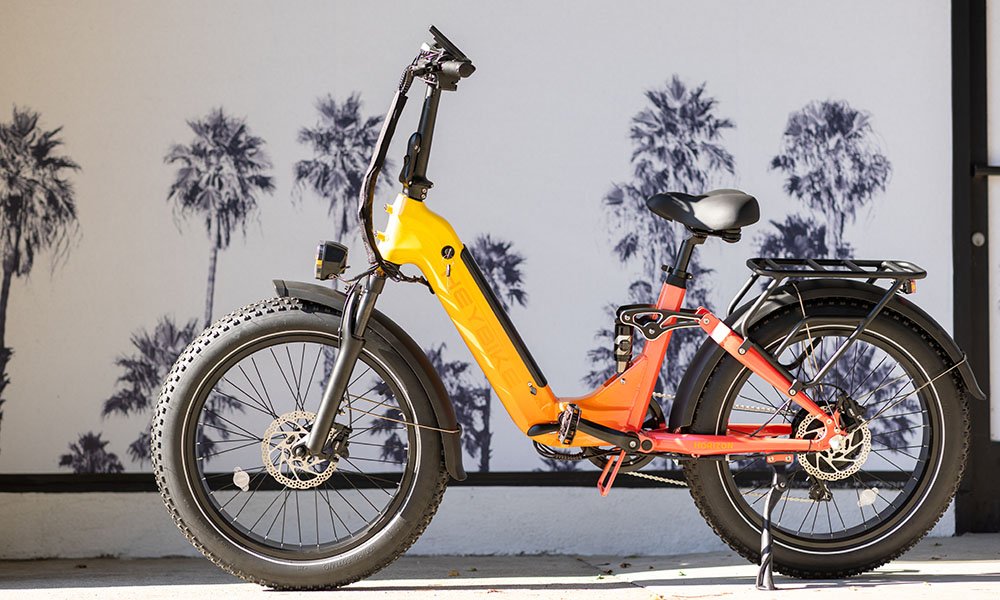
E-bikes are swiftly gaining traction as a cost-effective and sustainable alternative to traditional forms of transportation, particularly in urban areas. With advancements in technology, e-bikes now offer a reliable and efficient means of travel that can significantly reduce commuting costs and environmental impact. For the financially savvy, e-bikes present an opportunity to capitalize on these benefits, enhancing not only their mobility but also contributing positively to their overall budget.
This guide explores the top reasons why investing in an e-bike can be a wise financial decision, demonstrating how it aligns with both short-term savings and long-term gains.
High Resale Value
E-bikes tend to retain a considerable portion of their value over time, thanks to their growing popularity and the continuous advancements in e-bike technology. Models equipped with modern features such as efficient batteries and powerful motors are especially in demand in the secondhand market. This high resale value makes e-bikes a sound investment, as owners can recoup a significant amount of their initial expenditure if they decide to upgrade or sell their bikes.
To maximize the resale value, maintaining the e-bike in good condition is crucial. Regular cleaning, timely battery charging and storage, and keeping up with routine maintenance checks will help ensure the bike remains desirable to future buyers. This care not only prolongs the life of the e-bike but also enhances its appeal in the resale market, providing financial returns on the initial investment.
Reduced Transportation Costs
Electric bikes like the full suspension fat tire eBike offer a versatile solution for various terrains, making them ideal for both urban commutes and recreational outings. Such bikes are particularly cost-effective for those looking to replace or supplement their car usage, as they eliminate expenses related to fuel, parking, and public transportation. The initial cost of purchasing an e-bike can be quickly offset by the daily savings accumulated from these reduced transportation costs.
Furthermore, e-bikes require significantly lower maintenance compared to automobiles. Their simpler mechanical components, such as the electric motor and battery, demand less frequent servicing, which not only saves money but also time spent on maintenance. This aspect is particularly appealing for those who seek a low-maintenance, cost-efficient mode of transportation that reliably gets them from point A to point B without the recurring costs associated with car ownership.
Incentives and Subsidies
Many regions are encouraging the adoption of e-bikes through various incentives and subsidies, recognizing their benefits in reducing traffic congestion and pollution. These financial incentives can significantly lower the upfront cost of purchasing an e-bike. For example, some local governments offer rebates, tax exemptions, or vouchers that can reduce the purchase price by hundreds of dollars.
Prospective buyers should research local programs and incentives that could help them save on an e-bike purchase. This research could include visiting local transportation websites, consulting e-bike dealerships for information on qualifying models, or even participating in community energy-saving initiatives that include e-bikes. By taking advantage of these programs, buyers can make an e-bike purchase more affordable, enhancing the financial benefits and making the decision to switch even more advantageous.
Health Benefits and Reduced Medical Costs
Regular use of an e-bike can significantly enhance one’s health by integrating physical activity into daily routines, which is particularly beneficial for cardiovascular health and weight management. E-bikes strike a balance between exertion and assistance, making it easier for riders of all fitness levels to maintain a healthier lifestyle without the daunting physical barriers often associated with traditional biking or more intensive exercise forms. This consistent, moderate exercise helps prevent chronic diseases such as hypertension, diabetes, and obesity.

Moreover, improved physical health from regular e-bike usage can lead to decreased medical expenses over time. Healthier individuals typically require fewer doctor visits and less medication, and they can avoid the long-term costs associated with chronic illnesses. By using an e-bike, riders not only enjoy the immediate benefits of physical activity but also contribute to their long-term health and financial well-being, potentially saving thousands in future medical costs.
Insurance and Registration Costs
E-bikes also offer financial advantages in terms of insurance and registration requirements. Unlike cars, e-bikes usually do not require costly insurance policies or vehicle registration fees, which can add up to substantial annual savings. The insurance that is available for e-bikes is generally more affordable and covers theft and damage, providing peace of mind for a fraction of the cost of traditional vehicle insurance.
Additionally, the lack of registration and licensing requirements for e-bikes saves not only money but also time that would otherwise be spent on dealing with bureaucracy. This simplicity is particularly appealing to those who wish to reduce their administrative burdens while still enjoying the benefits of personal mobility. These reduced legal and insurance costs make e-bikes an even more attractive option for cost-conscious consumers looking for efficient and economical transportation solutions.
Environmental Impact and Future Cost Savings
Adopting an e-bike has a positive impact on the environment, as e-bikes emit no pollutants and use a fraction of the energy required by conventional motor vehicles. This reduction in pollution contributes to cleaner air and less environmental degradation, which can have long-term health benefits for the community. Additionally, by decreasing reliance on fossil fuels, e-bike users help reduce the economic costs associated with environmental cleanup and health care related to pollution-induced ailments.

The shift towards more sustainable modes of transportation like e-bikes also suggests potential future savings in public spending on infrastructure and environmental restoration. As cities adapt to more eco-friendly transportation options, the demand for costly road expansions and maintenance may decrease, indirectly benefiting taxpayers, including e-bike users. This forward-thinking approach not only preserves the planet but also aligns with prudent financial planning, anticipating future costs and savings associated with environmental stewardship.
Conclusion
Investing in an e-bike is a financially prudent decision that offers a multitude of benefits beyond simple cost savings. From the significant reduction in daily transportation costs and high resale value to incentives that lower initial purchase prices and health benefits that can decrease medical expenses, e-bikes present a compelling case for anyone looking to optimize their budget. Furthermore, the lower insurance and registration costs, combined with the positive environmental impact, make e-bikes an ideal choice for the economically and ecologically conscious individual. In summary, an e-bike is not only a tool for improved mobility but an investment in a sustainable and financially sensible lifestyle. This factor makes it an intelligent choice for those aiming to achieve economic efficiency while contributing positively to their health and the environment.










